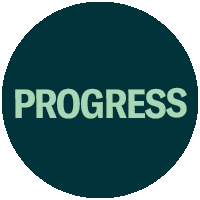WATCH: 2022 Post-Session Townhall
2022 PUBLIC POLICY PRIORITIES

Legalize Marijuana and Establish Community Reparations
This session, the ACLU of Maryland, and our key partners worked to center racial justice and equity in the efforts to legalize marijuana in Maryland. We supported SB 692, which sought to legalize adult recreational use of marijuana; prohibit the odor of marijuana alone from being used as probable cause to search a person or their vehicle; vacate previous marijuana-related convictions; and mandate opportunities for reconsideration hearings for those currently serving time for marijuana-related convictions, and other low-level felonies and misdemeanors if those charges stem from a conviction based on a search due to the odor of marijuana. Additionally, SB 692 sought to establish reparations for communities directly impacted by the war on drugs. Unfortunately, SB 692 was never brought up for a vote in the Senate Finance Committee.
However, the General Assembly passed two marijuana bills this session, one a ballot measure (HB 1) and the other legislation (HB 837) to start to address racially biased marijuana enforcement. Contingent on the passage of the ballot measure, HB 837 will allow the expungement of possession with intent to distribute after three years and the completion of any mandatory supervision, probation or parole. It also will allow automatic expungement of records for simple possession of marijuana, will allow for up to two homegrown plants per household, and will increase the allowed personal amount from 10 grams to 1.5 ounces. Additionally, HB 837 adopted the reparations model that the ACLU and Leaders of a Beautiful Struggle advocated for and established a Community Reinvestment and Repair Fund that will bring resources back to the communities most impacted by the war on drugs when the industry is established. A huge victory!
However, HB 837 still maintains the criminal penalties for possession above the civil use amount and for possession with intent to distribute. Additionally, the final bill fails to prohibit police from conducting warrantless searches of a person’s car solely based on the odor of marijuana. Not making those important changes will result in Black people continuing to face the brunt of the consequences given the way that Black people are disproportionately stopped and charged with marijuana related charges. We look forward to advocating for the provisions that did not make it into the final bill next session.

Empower the Baltimore City Civilian Review Board
The Maryland General Assembly first established the Baltimore City Civilian Review Board in 1999 with the authority to receive and investigate certain police misconduct complaints. During the 2021 legislative session, the General Assembly passed the Maryland Police Accountability Act of 2021, which requires each jurisdiction in Maryland to establish a Police Accountability Board, tasked with reviewing complaints from the public and appointing members to the Administrative Charging Committee and internal police department trial boards, among other responsibilities. Due to the conflicting statutes and similar functions of both entities, during the 2022 legislative session, the ACLU and the Maryland Coalition for Justice and Police Accountability supported HB 991/ SB 441, which would have allowed the current Baltimore Civilian Review Board to absorb the responsibilities and duties assigned to the Police Accountability Boards, attain independent counsel, and receive adequate funding to carry out its duties. The bill passed the House in good posture but unfortunately failed to pass the Senate due to backtracking on a compromise that the Baltimore City Mayor’s office previously agreed to. We are disappointed in the City’s apparent unwillingness to create a stronger CRB to help realize police accountability and community oversight.

Remove the Governor from Medical Parole
Last year, the General Assembly successfully removed the Governor from the parole process. Before the passage of last-session’s SB 202, Maryland was one of only three states that allowed the governor to overturn parole decisions for individuals serving sentences of life with the possibility of parole. However, due to a bill drafting error, the bill that passed and has since been enacted excludes medical parole, making medical parole the only type of parole that would require gubernatorial action. This session, we worked to remedy this error by supporting a technical fix bill, HB 920/SB 774. Unfortunately, although the bill passed out of the House Judiciary Committee in good posture, a harmful amendment was adopted on the floor. However, the amended bill that passed in the House did not receive a vote in the Senate. The cross-filed bill, SB 774, also did not receive a vote in the Senate.
That means that, unfortunately, the Governor was not removed from the medical parole process this session, which is a serious problem because the need for the Parole Commission to be able to act expeditiously is arguably most critical in those cases where the parole candidate is seriously ill or dying.
Next session, we will resume work to ensure this technical fix bill is passed and parity is created across the parole process for individuals sentenced to life imprisonment.

Due Process for Children in the Legal Justice System
The ACLU of Maryland, along with the Maryland Youth Justice Coalition, successfully passed the Child Interrogation Protection Act (SB 53/ HB 269). The right to counsel for children was established in 1967 with the landmark case In re Gault, 387 U.S. 1, 87 S. Ct. 1428 (1967). The Supreme Court held in Gault that children have the right to remain silent and that no child can be convicted unless compelling evidence is presented in court, under the due process clause of the 14th Amendment. The bill was considered for a third time this session, and it finally received broad support and commitment from both chambers. It requires an attorney be consulted when a child is first interrogated by law enforcement. The bill also ensures that parents/guardians for the child are notified when the child is taken into custody. Finally, the bill allows the Maryland Courts to create age-appropriate language when reading children their rights. Studies show that children waive their Miranda rights at a rate of 90% and make false confessions at a higher rate than adults. After a lengthy amendment process on exceptions attempting to bypass the law in certain circumstances, the resulting language ultimately upholds the standard public safety exception to Miranda in Maryland.
The bill passed out of the Senate Judicial Proceedings Committee and passed on the Senate floor with a veto proof majority. The House then took up the amended Senate version and after a lengthy House floor debate, the House passed the bill with a veto proof majority. Governor Hogan vetoed the bill three days before the end of the session and the legislature overrode the veto with a day to spare. The bill goes into effect October 1, 2022.

Non-Discrimination in Private Schools that Get Taxpayer Funding
The ACLU opposes taxpayer funding of private schools, particularly in Maryland where the vast majority of private schools that receive public funds are religious. However, the ACLU and partners this session finally were able to pass a bill to prevent every school receiving public taxpayer dollars from discriminating, with HB 850 passing with broad support. The bill was amended in the House and Senate with provisions to allow private and religious schools more autonomy over enrollment, and unfortunately it still does not include a private right of action to bring legal challenges. However, the bill does include a remedy process to allow families to bring complaints of discrimination. The bill goes into effect July 1, 2022.
RIGHT TO EDUCATION

Securing Constitutionally Adequate and Equitable Funding
Progress. The Blueprint for Maryland's Future (HB1300, 2020 & HB1450, 2021) is expected to add $3.8 billion to public schools statewide, phased in over 10 years. The Blueprint required Governor Larry Hogan to increase funding for public education by $456 million or 6.7% from the prior year. However, it is unclear exactly what school communities can expect to see for the 2022-23 school year until the Blueprint Accountability and Implementation Board and school districts provide reports on the how Blueprint programs will be implemented.
During this year's General Assembly, the governor included most of the funding mandated by the Blueprint law in his proposed FY23 budget (School Year 22-23), but he shortchanged public schools by $140 million, as his administration contended that funding for certain Blueprint programs was discretionary this year. Of that total, $125.5 million in "Education Effort Adjustment" funding — intended to support to Baltimore City and Prince George's County schools — was completely left out. Back in 2020, the ACLU championed the amendment to include the Education Effort Adjustment in the Blueprint bill to ensure that the districts with the lowest wealth and highest needs get additional funding from the state to meet the local funding requirements mandated in the bill.
The ACLU asserted that the Education Effort Adjustment was mandatory and without it, education funding would be wholly inequitable. In collaboration with the Maryland Alliance for Race Equity in Education (MAREE), the Maryland Education Coalition (MEC), and Strong Schools Maryland, the ACLU this session urged the governor to release a supplemental budget to include the $140 million to fund public education at the level set by the Blueprint law for FY23. The governor then responded with a supplemental budget that included the $140 million for the Education Effort Adjustment and the development of other Blueprint programs that include college and career readiness, early childhood development, school-based health centers, and teacher development.
Certain state education funding that was provided to jump start Blueprint programs in prior years before the bill was passed is phasing out, along with aid provided by the federal government to address learning loss and other issues related to the COVID-19 pandemic. Overall, public schools will see an increase in funding this year, mostly due to the Blueprint's mandatory increases set by law.
Funding for the Arts: In addition to general state aid for education, the ACLU supported Arts Everyday Maryland and Arts Education in Maryland Schools to pass HB 1469 — Maggie McIntosh Art Fund. Beginning this school year, the fund will provide $250,000 annually in grants to help public schools in Baltimore City that meet the threshold for the Concentration of Poverty grant as defined in the Blueprint law to purchase art supplies for their classrooms. The fund will be administered by Arts Every Day.
The ACLU also supported HB 1450 - Blueprint for Maryland's Future - Implementation Plans and Funds, which extends the date for the Blueprint Accountability and Implementation Board to adopt its Comprehensive Implementation Plan from February 2022 to December 2022. Local school districts must complete their implementation plans by March 2023. The bill also requires MSDE to implement a new methodology for calculating students whose families have the lowest income, which has significant funding implications for schools statewide. Lastly, the bill dedicates $800 million from the FY23 surplus to the Blueprint Fund for implementation of the Blueprint programs in the out-years.
While the projected funding in the Blueprint law is significant, it is unclear as to whether or not it will meet the level of funding necessary to meet the state's constitutional standard of "adequacy". Thus, the ACLU and NAACP Legal Defense Fund continue to pursue this matter through the Bradford vs the Maryland State Board of Education lawsuit.

Ending the School-to-Prison Pipeline
The serious racial disparities between suspensions imposed on Black and Brown students and their white peers is exacerbated by laws that govern "reportable offenses" — offenses that happen off school property or at non-school related activities. Before the passage of HB 146, school districts had the authority to suspend or remove a student from school if a student was arrested for or charged with a reportable offense, even if the offense had no impact on the school community. With the passage of this new law, schools must abide by existing school discipline policies if suspension or expulsion is proposed, which gives the student fair due process. The bill ensures that a student's attorney is included for any process that involves consideration of suspension or expulsion for a reportable offense. It also requires MSDE to collect data from local school districts on reportable offenses
For a second year in a row, HB 23 - School Discipline - Data Collection passed in the House but did not receive a vote in the Senate Education, Health, and Environmental Affairs Committee. This bill, which is part of a package of bills recommended in the final report in 2018 by the state's Commission on the School-to-Prison Pipeline and Restorative Practice, would have required the Maryland State Department of Education to publish data on student suspensions, disaggregated by race, ethnicity, disability status, gender, English language proficiency, and socioeconomic factors for every public school in Maryland. To ensure that Maryland schools are making progress toward ending biased treatment of students, the ACLU will advocate for MSDE to make this data available in the interim.

Safe, Healthy and Modern Public School Facilities
The ACLU has played a key role in establishing new school construction programs and securing higher levels of school infrastructure funding over the past decade. The state's capital budget includes $1.2 billion for school construction for FY23, which is roughly three times larger than the average annual allocation over the previous decade. Large state revenue surpluses and $40 million in federal relief dollars will expand existing state school construction programs that address urgent health and safety deficiencies, building additional space for overcrowded schools, full renovations and new construction, and mechanical system replacements.
Further, the Built to Learn Act (HB 1, 2020), modeled after the ACLU's financing structure for Baltimore City Public Schools' $1 billion school construction program (HB 860, 2013), is estimated to generate $2.2 billion over the next several years for all 24 public school districts in Maryland — approximately $480 million will be available for FY23. Given the many billions needed to address outdated and deficient school facility conditions and growing enrollment in certain districts across Maryland, the state will need to maintain this high level of funding over the next decade to ensure that significant progress is made towards creating safe, healthy, and modern school buildings.
The ACLU also successfully supported HB 1290 — Public School Construction Funding, which is focused on bringing more equity in policies that governs school construction, including in the distribution of state funding. The bill raises the target funding level for school infrastructure funding to $450 million annually — up from $250 million. It requires the Governor to contribute $20 million in FY24, and $10 million each FY25 and FY26 into the School Construction Revolving Loan Fund, which now has $40 million in the FY23 state budget. In line with the practice of high wealth districts, this fund will help school systems in districts with low-wealth "forward fund" school construction projects so that they can get done quickly. The bill also expands the Healthy Schools Facility Fund through FY26, and mandates $80 million in funding for FY27 in the School Facilities Priority Fund. These programs prioritize funding for districts of low wealth with the most deficient school buildings.

Replace Police with Student Supports
As part of the legislative agenda for the Maryland Coalition for Justice and Police Accountability this session, the ACLU advocated for a bill to remove police from schools and reallocate state dollars from student resource officers to student mental health and behavioral services, wraparound supports for students, and restorative approaches that work. Unfortunately, the Counselors Not Cops bill was withdrawn before the introduction deadline. There is a diversity of views within the legislature on this issue, and the bill was deemed too controversial for introduction this session. We will continue to educate lawmakers on the importance of removing police from schools to secure more support for future passage.
OTHER CRITICAL LEGISLATION
In addition to the above legislative priorities, the ACLU of Maryland also dedicated time, energy, and resources to the following bills and efforts:

Reform Juvenile Justice System
The ACLU and our partners advocated for SB 691/HB 459, which improves the juvenile justice system by raising the minimum age of juvenile court jurisdiction, banning imprisonment of children for low-level offenses, and removing barriers to diversion of children out of the system. The bill passed both chambers with a veto proof majority and goes into effect June 1, 2022.

Abortion Rights
With challenges and rollbacks in abortion care happening in many states throughout our country, the ACLU worked with Planned Parenthood of Maryland and other partners to affirm and expand abortion services in Maryland. Not only do Marylanders need better access to care, people living in nearby states are likely to continue looking towards Maryland for services. HB 937 — Abortion Care Access passed both legislative chambers before being vetoed by the governor, which was overridden days before the close of session. Joining 14 other states, this bill will expand abortion care by allowing nurse practitioners, nurse-midwives, and physician assistants to provide certain services and procedures. The bill provides $3.5 million for clinical education to increase the number of professionals that can provide abortion care and extends abortion coverage in Maryland Medicaid programs and private insurance plans.

Police Accountability– Kwamena’s Law
This session, the ACLU worked with partners to support HB 429 - Kwamena’s Law, which sought to expand our statewide body-worn camera requirement to include plainclothes officers and municipal police departments. Unfortunately, the bill was not brought up for a vote by the House Judiciary Committee.

Commissary Reporting
The ACLU has continued to push for greater transparency and accountability behind bars this session. We supported HB 278, which requires the Department of Public Safety and Correctional Services to report the cost of calls and commissary products such as medication and feminine hygiene products. The bill also requires Maryland Correctional Enterprises to include the demographics of workers and their wages in their annual report. This bill once again passed the House but was stalled in the Senate Judicial Proceedings Committee for the third year in a row. Although HB 278 did not receive a vote in the Senate, the bill language was ultimately amended onto SB 861 by the House Judiciary Committee, passed the House, and approved by the Governor.

Improving the Maryland Public Information Act
This year, we worked with legislators and coalition members on SB 777. Since the passage of Anton’s Law in 2021, concerned Marylanders have been met with exorbitant fees, long processing times, and the outright refusal of agencies to cooperate with public information requests related to police misconduct investigations. As a result, SB 777 creates a task force to study MPIA requests, which will review costs of MPIA requests, disclosure procedures, and the operations of the MPIA Compliance Board. SB 777 passed in both chambers and the report, which will provide essential insight, will be released by December 31st, 2022.

Fixing Probation Consequences for Immigrants
Maryland’s probation before judgment (PBJ) statute currently has a loophole that causes unintended consequences for immigrants. PBJ is meant to be an alternative way for people to take responsibility for low-level offenses without being burdened with a criminal record. However, while PBJ is not a conviction under Maryland law, it is considered a conviction under federal immigration law, which subjects immigrants to harsh penalties, including deportation. By slightly altering the statutory language, HB 559 / SB 265 would leave the process the same for almost all defendants while eliminating these severe consequences for immigrants, making this sentence fairer for everyone. HB 559 passed the House, and passed out of the Senate Judicial Proceedings Committee and second reader, but unfortunately was special ordered on third reader on Sine Die and failed to pass out of the Senate before session adjourned.
Stay Informed
Sign up to be the first to hear about how to take action.
By completing this form, I agree to receive occasional emails per the terms of the ACLU’s privacy statement.
By completing this form, I agree to receive occasional emails per the terms of the ACLU’s privacy statement.

